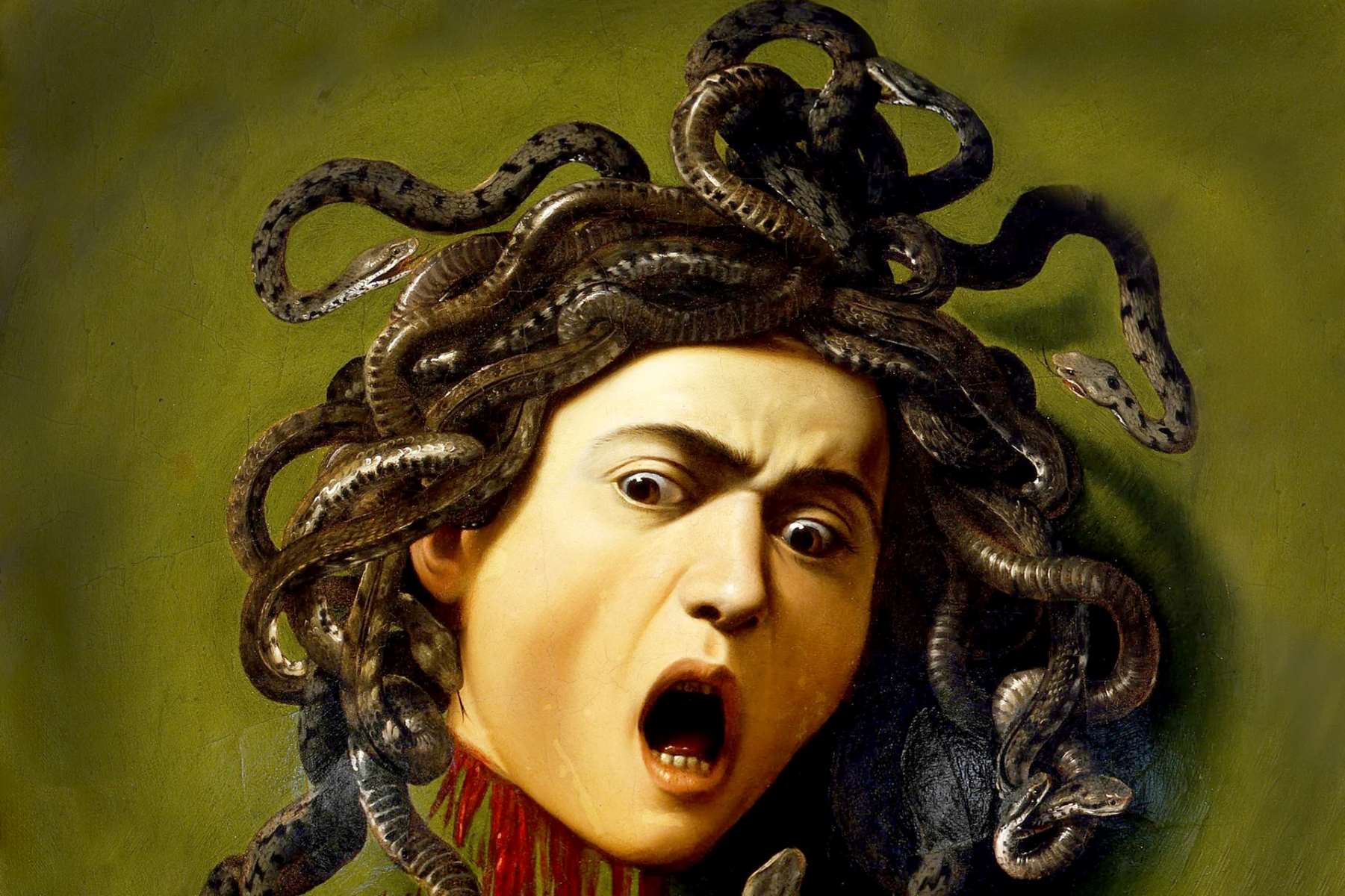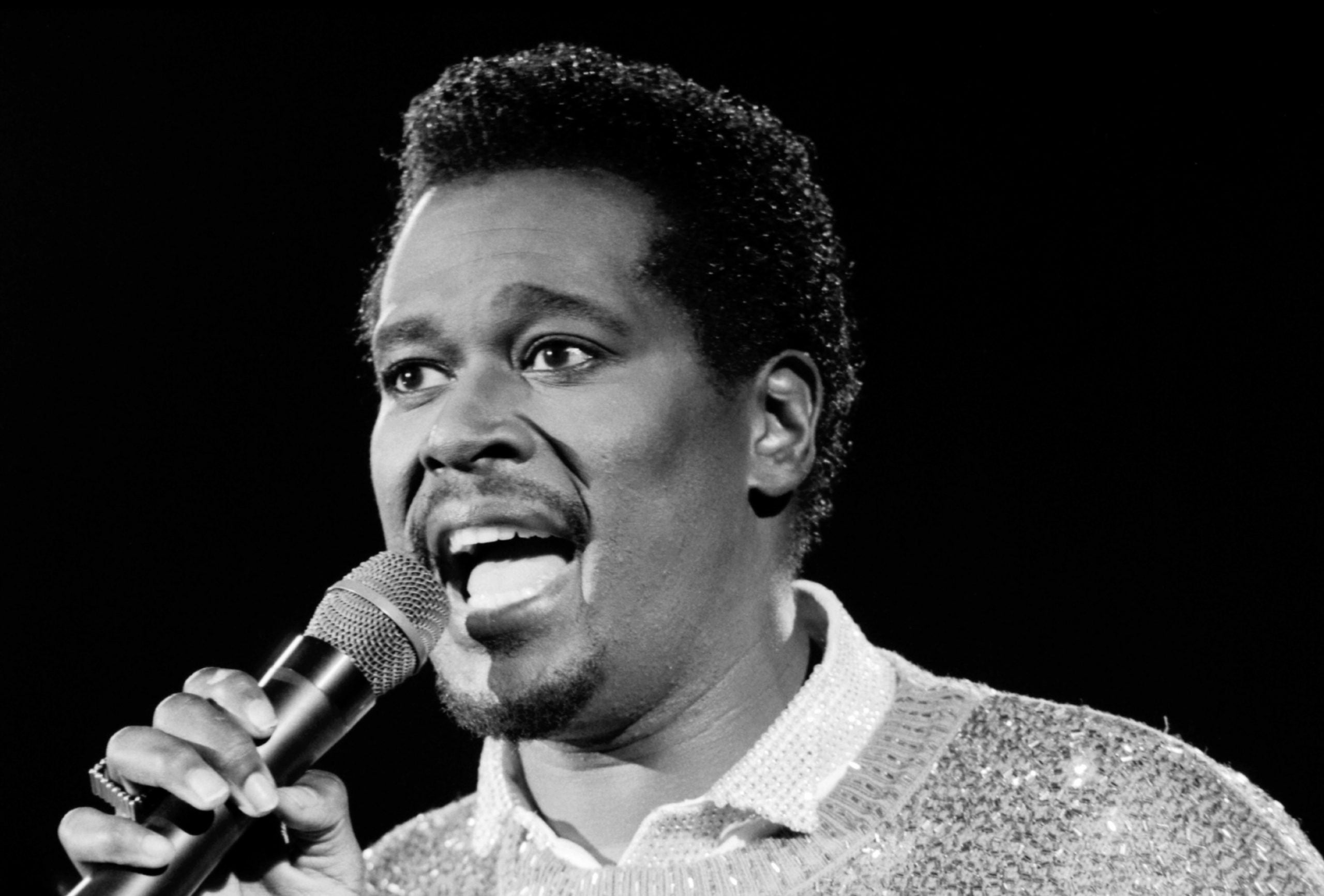Home>Arts and Culture>The Surprising Origin Of “Inquiring Minds Want To Know”


Arts and Culture
The Surprising Origin Of “Inquiring Minds Want To Know”
Published: January 22, 2024
Uncover the fascinating history behind the iconic phrase "Inquiring Minds Want to Know" in this captivating exploration of arts and culture. Discover the surprising origins that have shaped popular culture.
(Many of the links in this article redirect to a specific reviewed product. Your purchase of these products through affiliate links helps to generate commission for Regretless.com, at no extra cost. Learn more)
Table of Contents
Introduction
"Inquiring minds want to know" is a phrase that has permeated popular culture, finding its way into conversations, media, and even advertising. This catchy and enigmatic expression has a fascinating origin story, intertwined with the rise of a renowned tabloid publication and its enduring impact on language and society.
The phrase "Inquiring minds want to know" has transcended its original context to become a widely recognized and oft-repeated idiom. Its journey from a marketing slogan to a cultural phenomenon is a testament to the power of language and the enduring influence of media on our collective consciousness.
This article delves into the captivating history of this iconic phrase, tracing its origins, exploring its evolution, and examining its pervasive presence in popular culture. From its humble beginnings to its ubiquitous presence in contemporary discourse, the story of "Inquiring minds want to know" offers a compelling glimpse into the intersection of media, language, and human curiosity.
The Birth of a Catchphrase
In the realm of advertising and media, catchphrases have the remarkable ability to captivate audiences and embed themselves in the cultural lexicon. The birth of the phrase "Inquiring minds want to know" can be traced back to the innovative marketing strategies of The National Enquirer, a widely circulated tabloid publication known for its sensationalist stories and eye-catching headlines.
During the 1980s, The National Enquirer sought to distinguish itself in a competitive and crowded media landscape. In a stroke of marketing genius, the publication's editorial team conceived the phrase "Inquiring minds want to know" as a compelling tagline to accompany their attention-grabbing headlines. This succinct and enigmatic expression encapsulated the essence of the tabloid's content, appealing to readers' innate curiosity and desire for sensational stories.
The strategic deployment of this catchy catchphrase proved to be a game-changer for The National Enquirer, propelling the publication to new heights of visibility and influence. The phrase became synonymous with the tabloid's brand identity, adorning its covers and permeating its marketing campaigns. Through a combination of strategic branding and relentless repetition, "Inquiring minds want to know" became deeply entrenched in the public consciousness, transcending its original purpose to become a cultural touchstone.
The genius of this catchphrase lay in its ability to tap into the universal human inclination toward curiosity and the pursuit of knowledge. By invoking the notion of inquisitive minds seeking information, The National Enquirer effectively leveraged a fundamental aspect of human nature to engage and entice its audience. The phrase resonated with readers on a primal level, appealing to their insatiable thirst for intriguing and often scandalous stories.
As the catchphrase gained traction, it transcended its association with The National Enquirer, permeating popular culture and becoming a ubiquitous presence in everyday conversations. Its adoption as a humorous and ironic expression further solidified its status as a cultural phenomenon, firmly rooted in the collective consciousness of society.
The birth of the catchphrase "Inquiring minds want to know" stands as a testament to the transformative power of language in shaping public perception and influencing consumer behavior. Its inception within the realm of tabloid journalism not only propelled The National Enquirer to unprecedented levels of success but also left an indelible mark on the cultural landscape, affirming the enduring impact of a well-crafted catchphrase.
The evolution and enduring resonance of "Inquiring minds want to know" serve as a compelling illustration of the profound influence wielded by media and marketing in shaping our language, perceptions, and collective imagination.
The National Enquirer's Influence
The National Enquirer's influence extended far beyond the realm of tabloid journalism, leaving an indelible imprint on popular culture and language. At the heart of this influence was the strategic and innovative use of the catchphrase "Inquiring minds want to know" as a potent tool for engaging and captivating audiences.
The tabloid's relentless pursuit of sensational stories and attention-grabbing headlines propelled it into the public eye, garnering a vast readership and solidifying its status as a cultural phenomenon. The strategic deployment of the catchphrase as a central element of The National Enquirer's branding strategy played a pivotal role in shaping its identity and amplifying its impact on the media landscape.
By seamlessly integrating "Inquiring minds want to know" into its editorial content and marketing campaigns, The National Enquirer harnessed the power of language to tap into the innate curiosity of its audience. This deliberate fusion of compelling storytelling with an irresistible call to curiosity proved to be a winning formula, propelling the tabloid to the forefront of public consciousness.
The catchphrase became synonymous with the tabloid's brand, adorning its covers and permeating its promotional materials. Its ubiquitous presence served as a constant reminder of the tabloid's ability to satiate the public's appetite for sensational and often controversial narratives.
Beyond its immediate impact on readership and circulation, The National Enquirer's influence reverberated throughout the broader media landscape, shaping the way in which stories were crafted and presented. The tabloid's distinctive style and the strategic use of the catchphrase set a precedent for engaging with audiences on a visceral and emotive level, influencing the evolution of journalistic practices and editorial strategies.
Furthermore, the catchphrase's permeation into popular culture transcended its original association with tabloid journalism, becoming a widely recognized and oft-repeated idiom. Its adoption as a humorous and ironic expression further cemented its status as a cultural touchstone, firmly embedded in the collective consciousness of society.
The National Enquirer's influence, epitomized by the strategic deployment of the catchphrase "Inquiring minds want to know," underscores the profound impact of media and marketing on language, perception, and cultural discourse. Its enduring legacy serves as a testament to the transformative power of a well-crafted catchphrase in shaping public consciousness and leaving an indelible mark on the fabric of society.
The Evolution of the Phrase
The catchphrase "Inquiring minds want to know" underwent a remarkable evolution, transcending its origins as a marketing slogan for The National Enquirer to become a pervasive and enduring presence in popular culture. Its journey from a promotional tagline to a widely recognized idiom is a testament to the transformative power of language and the enduring impact of media on societal discourse.
Following its inception as a strategic branding tool for the tabloid publication, the phrase quickly permeated the public consciousness, becoming synonymous with curiosity and the pursuit of intriguing information. Its adoption as a humorous and ironic expression further solidified its status as a cultural touchstone, firmly rooted in the collective imagination.
As the catchphrase gained traction, it transcended its association with The National Enquirer, finding resonance in diverse contexts and mediums. From television shows to advertising campaigns, the phrase became a ubiquitous presence, ingrained in the fabric of everyday language. Its adaptability and versatility allowed it to seamlessly integrate into a myriad of narratives, reinforcing its status as a universally recognized idiom.
The enduring resonance of "Inquiring minds want to know" can be attributed to its innate appeal to human curiosity and the universal desire for knowledge. Its succinct and enigmatic nature lends itself to a wide range of interpretations, allowing individuals to infuse it with their own meanings and contexts. This inherent adaptability has contributed to the phrase's longevity and its ability to transcend generational and cultural boundaries.
Furthermore, the catchphrase's evolution mirrored broader shifts in media and communication, reflecting the evolving dynamics of storytelling and audience engagement. Its enduring presence in popular culture serves as a testament to the enduring influence of media on language and societal discourse, highlighting the profound impact of well-crafted messaging on public consciousness.
In essence, the evolution of the phrase "Inquiring minds want to know" encapsulates the transformative power of language and the enduring influence of media on cultural narratives. Its journey from a tabloid tagline to a widely recognized idiom underscores the profound impact of language in shaping collective imagination and societal discourse, perpetuating its legacy as a timeless and evocative expression.
The Phrase in Popular Culture
The catchphrase "Inquiring minds want to know" has transcended its origins in tabloid journalism to become an integral part of popular culture. Its pervasive presence in everyday conversations, entertainment, and advertising underscores its enduring impact on societal discourse and language. This iconic expression has seamlessly integrated into the fabric of popular culture, permeating diverse mediums and contexts with its enigmatic allure.
In television and film, "Inquiring minds want to know" has been embraced as a humorous and ironic refrain, often employed to evoke curiosity or add a touch of whimsy to storytelling. Its inclusion in dialogue and narratives serves as a nod to its widespread recognition, offering a playful homage to its origins while affirming its status as a cultural touchstone. Whether uttered in jest or as a genuine expression of interest, the phrase has become a familiar and endearing presence in the realm of entertainment, resonating with audiences across generations.
Moreover, the catchphrase has found resonance in the realm of advertising and marketing, where its evocative appeal is leveraged to engage consumers and ignite their curiosity. From catchy slogans to promotional campaigns, "Inquiring minds want to know" has been adeptly utilized to captivate audiences and leave a lasting impression. Its enigmatic nature and universal appeal make it a compelling tool for crafting memorable and impactful messaging, reinforcing its enduring relevance in the ever-evolving landscape of advertising and consumer engagement.
Beyond its presence in traditional media, the catchphrase has permeated digital platforms and social media, where it continues to thrive as a widely recognized and oft-repeated idiom. Memes, hashtags, and viral content have propelled "Inquiring minds want to know" into the digital zeitgeist, where it serves as a playful and relatable expression of curiosity and intrigue. Its adaptability to online communication further solidifies its status as a timeless and versatile phrase, seamlessly transitioning into the digital vernacular of contemporary culture.
In essence, the phrase "Inquiring minds want to know" has become an enduring fixture in popular culture, transcending its origins to become a universally recognized and cherished expression. Its seamless integration into entertainment, advertising, and digital discourse attests to its timeless appeal and its ability to resonate with diverse audiences. As a testament to the enduring influence of language and media, this iconic catchphrase continues to captivate inquiring minds and leave an indelible mark on the collective imagination of society.
Conclusion
The journey of the phrase "Inquiring minds want to know" is a captivating narrative that encapsulates the transformative power of language, the enduring influence of media, and the indelible impact of well-crafted messaging on societal discourse. From its humble origins as a marketing tagline for The National Enquirer to its pervasive presence in popular culture, this iconic expression has transcended its initial context to become a universally recognized and cherished idiom.
The catchphrase's evolution from a strategic branding tool to a cultural touchstone underscores its enduring resonance and timeless appeal. Its ability to seamlessly integrate into diverse mediums, including television, film, advertising, and digital communication, speaks to its adaptability and versatility. Whether employed as a humorous refrain or a genuine expression of curiosity, "Inquiring minds want to know" continues to captivate audiences and leave an indelible mark on the collective imagination.
Furthermore, the phrase's enduring presence in popular culture serves as a testament to the profound influence of media on language and societal discourse. Its ability to evoke curiosity, intrigue, and whimsy has solidified its status as a universally recognized expression, perpetuating its legacy across generations and cultural contexts.
Ultimately, the story of "Inquiring minds want to know" offers a compelling glimpse into the enduring impact of language and the profound influence of media on shaping collective imagination. Its journey from a tabloid tagline to a widely embraced idiom underscores the enduring resonance of well-crafted messaging and its ability to transcend temporal and cultural boundaries.
As inquiring minds continue to seek knowledge and intrigue, the phrase "Inquiring minds want to know" stands as a timeless and evocative expression, perpetuating its legacy as a captivating and enduring element of popular culture.














